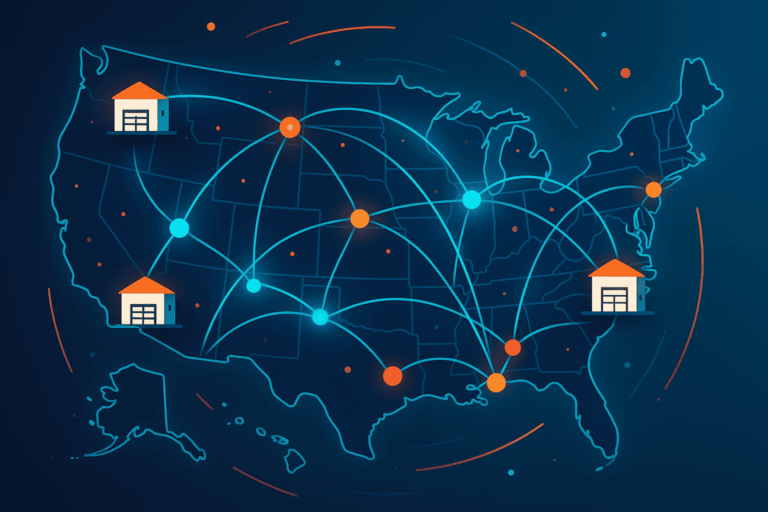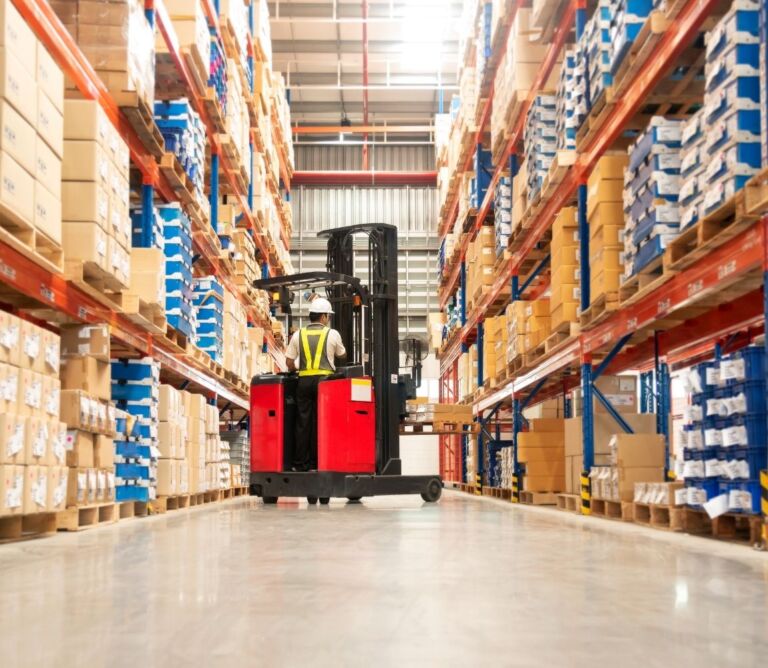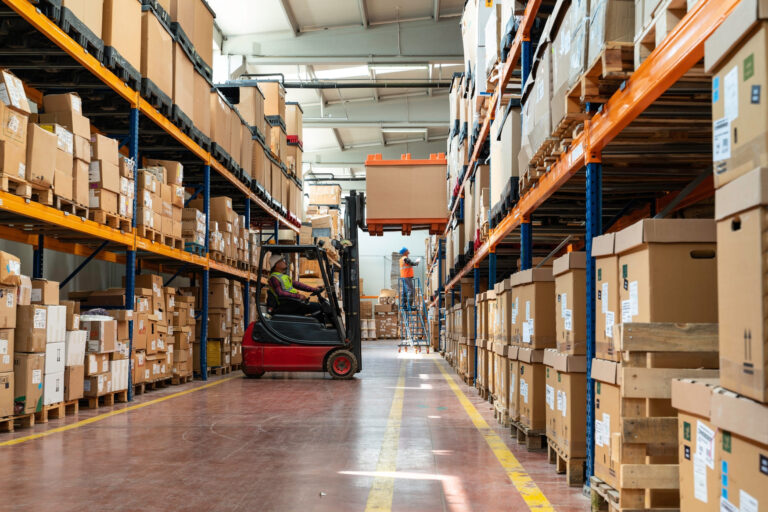Small Business 3PL & Micro Fulfillment: How to Choose the Right Fulfillment Partner

The e‑commerce boom has made fast, reliable delivery a non‑negotiable for consumers. Startups and small businesses often struggle to keep up with rising logistics costs and complex supply chains, yet they may not need the “Big 3PL” giants to compete. A specialized third‑party logistics (3PL) partner or a micro‑fulfillment center can give small businesses access to scalable warehousing, automation and discounted shipping without the capital outlay of building their own network. This guide explains why and when to outsource fulfillment, how micro‑fulfillment differs from traditional warehouses, and how to select a fulfillment partner tailored to your business.
Why Small Businesses Need the Right 3PL
Signs it’s time to outsource
Handling fulfillment internally can work during the startup phase, but there are clear warning signs that indicate it’s time to partner with a 3PL. Small businesses should consider outsourcing when logistics costs rise faster than revenue, staff become overwhelmed by shipping tasks, customer complaints increase, inventory records are inaccurate, expansion into new markets strains resources, or when the company wants to reduce operational risk. When these issues surface, partnering with a 3PL can provide economies of scale, professional expertise and access to technology that small teams lack.
Benefits over in‑house fulfillment
A good 3PL converts fixed logistics costs-warehousing space, equipment and labor-into variable operating expenses so that businesses pay only for the services and space they use. This is especially helpful during seasonal spikes because 3PL resources can expand and contract with demand. Outsourcing also enables geographic expansion: established 3PL networks let small brands position inventory across multiple regions, reducing shipping times and costs and making two‑day or next‑day delivery possible. Moreover, logistics specialists bring best practices for warehouse layout, pick‑and‑pack procedures and carrier selection, while technology integrations give real‑time visibility into inventory levels and order status.
What Is a Micro‑Fulfillment Center?
Micro‑fulfillment centres (MFCs) are compact, highly automated warehouses strategically located near urban customers. They use robotics, automated storage and retrieval systems and software to generate picking lists and even perform some picking tasks. Because MFCs are close to the end consumer, deliveries travel shorter distances, which speeds up shipping and lowers costs. The proximity also improves customer service – returns and exchanges can be processed quickly, and some MFCs operate as “dark stores,” allowing local pickup without shipping. For small businesses, micro‑fulfillment provides access to same‑day or next‑day delivery and lowers the barrier to entering new markets without committing to large warehouses. When an MFC is part of a larger 3PL network, inventory can be distributed strategically across multiple locations to further optimize shipping.
Benefits of Using a Small Business 3PL
Faster delivery & customer satisfaction
Partnering with a 3PL that operates multiple fulfillment centers allows small businesses to store inventory closer to customers. Multi‑fulfillment centers help reduce shipping costs and provide faster delivery times. Micro‑fulfillment centers, in particular, accelerate picking and packing through automation and shorten the distance to the customer, enabling same‑day or next‑day delivery. Quick deliveries not only delight customers but also improve return handling and exchanges, giving small brands a competitive edge.
Cost efficiency & variable expenses
Maintaining an in‑house warehouse requires capital investment in buildings, equipment and staff; 3PLs offer a variable cost model. Businesses pay only for the services and space they use, turning fixed costs into scalable operating expenses. Outsourcing logistics can significantly reduce shipping costs because 3PLs negotiate carrier discounts based on aggregate volumes. Multi‑center network reduces shipping costs and overhead, and using a 3PL can help small businesses avoid large capital investments in automation and multiple warehouses.
Scalability & flexibility
Specialized 3PLs tailor their services to the ebb and flow of small‑business demand; they offer flexible pricing and low minimum requirements. Good 3PL should provide scalable plans, low minimum order requirements and the ability to grow with your business. Mid‑size 3PLs offer the best of both worlds: they are agile and responsive like small providers but have the infrastructure to support growth. Mid‑size providers can quickly adjust to supply‑chain disruptions and offer customized solutions without requiring massive volume commitments.
Technology & expertise
Quality 3PLs invest in advanced technology, including warehouse management systems, transportation management systems and analytics platforms. They integrate with e‑commerce platforms like Shopify, WooCommerce and marketplaces so orders and inventory sync automatically. Real‑time dashboards reveal shipping times, order accuracy and return rates, enabling data‑driven decisions. Modern fulfillment centers use real‑time order tracking and automatic routing to ensure fast, accurate shipping, while technology like pick‑by‑light and autonomous mobile robots increases picking speed and accuracy.
Specialized services, compliance & support
Some products require special handling, packaging or regulatory expertise. Small sellers that 3PLs can guide them through taxes and duties for international shipping and meet legal requirements for regulated goods. They also help select appropriate packaging materials to protect products and reduce costs. A 3PL can manage returns and reverse logistics, handle kitting or custom packaging and provide dedicated customer service.
Geographic reach & multi‑location networks
A distributed network of fulfillment centers allows small businesses to offer two‑day shipping across broad regions without opening multiple warehouses themselves. Choose a 3PL with national or international fulfillment networks to enable faster delivery and lower last‑mile costs. Micro‑fulfillment centers complement this by providing urban nodes near dense customer populations.
How to Choose the Right 3PL for Your Small Business
- Assess your logistics needs: Start by listing the tasks you want to outsource: pick/pack/ship, warehousing, real‑time inventory tracking, kitting, 2‑day delivery, returns management etc. Fit Small Business advises mapping which services you need and ruling out providers that don’t offer them.
- Set a budget and request quotes: 3PL pricing is typically bespoke. Request quotes from multiple providers, check for volume‑based discounts and be aware of hidden fees or minimum requirements. Compare value over price-more expensive providers may offer better accuracy, faster shipping or dedicated support.
- Evaluate technology integrations & analytics: Ensure the provider integrates with your e‑commerce platform, marketplaces and accounting systems, and provides analytics dashboards showing inventory levels, shipping times and fulfillment costs. Access to real‑time data helps you manage stock levels and forecast demand.
- Check warehouse locations & network: The location of fulfillment centers affects shipping speed and cost. A national or international network allows 2‑day delivery and distributed inventory strategies. Ask whether the provider operates micro‑fulfillment centers near your largest customer bases.
- Consider specialization and size: Decide whether a specialized 3PL that caters to small businesses or a mid‑size provider suits your needs. Specialized 3PLs offer flexible pricing, niche expertise and scalability. Mid‑size 3PLs provide personalized service and agility while still offering significant resources. Avoid providers that force you into one‑size‑fits‑all contracts or high volume commitments.
- Verify service level & support: Look for providers that assign dedicated account managers and offer responsive customer service. Ask about returns management, kitting, custom packaging, compliance expertise and value‑added services.
- Check pricing transparency & scalability: Choose a 3PL with clear billing structures, no hidden fees and the ability to scale as your order volume grows. Low minimum order requirements and flexible plans are particularly important for startups.
Micro Fulfillment vs. Traditional Fulfillment
| Feature | Micro‑fulfillment | Traditional fulfillment |
|---|---|---|
| Facility size & location | Compact (5 000–20 000 sq ft) urban warehouses located close to customers, often within city centers. | Large regional warehouses located in suburban or rural areas for bulk storage; delivery takes longer. |
| Automation & technology | Highly automated with robots, AS/RS systems and software that generates pick lists automatically; some picking handled by machines. | Moderate automation; relies more on manual labor and conveyor systems. |
| Delivery times | Enables same‑day or next‑day delivery and local pickup options. | Typically 2–5 days due to longer distances and order processing times. |
| Inventory capacity | Limited storage; designed for fast‑moving, high‑velocity SKUs. | Large capacity for bulk inventory and slow‑moving items. |
| Start‑up costs | Lower capital requirement; small businesses can access micro‑fulfillment through specialized 3PLs or co‑warehousing. | High capital requirement for building or leasing large warehouses; often suited for bigger companies. |
| Best for | Same‑day/next‑day delivery, urban markets, fast‑moving items, and businesses seeking flexible, scalable fulfillment. | High‑volume storage, wholesale distribution, or products requiring long‑term warehousing. |
Real‑World Examples
- Subscription food startup: A small subscription snack company experienced rapid growth in a metropolitan area. Its in‑house team struggled to pack weekly orders and handle perishable inventory. By partnering with a local micro‑fulfillment center, the brand stored popular items close to customers. Automated picking and packing reduced order processing time, enabling same‑day delivery and drastically lowering shipping costs. The 3PL managed cold storage and compliance, allowing the founders to focus on product development and marketing.
- Growing fashion brand: An online apparel retailer wanted to expand beyond its home region without investing in new warehouses. The company partnered with a mid‑size 3PL that operated both traditional distribution centers and urban micro‑fulfillment hubs. Inventory was distributed to hubs near major cities based on historical demand. Advanced analytics integrated with Shopify gave real‑time inventory visibility, and the 3PL’s returns management simplified processing of exchanges. Within months, the brand offered two‑day shipping nationwide and launched in international markets without major capital outlay.
Conclusion
Small businesses no longer have to choose between doing everything in‑house and signing expensive long‑term contracts with “Big 3PL” providers. Specialized and mid‑size 3PLs offer scalable, flexible services tailored to startups and growing brands. Micro‑fulfillment centers, with their automation and proximity to customers, enable same‑day and next‑day delivery without the overhead of large warehouses. By carefully assessing logistics needs, budgeting and comparing technology, networks and support, small businesses can find a fulfillment partner that accelerates growth, controls costs and delights customers. Ready to streamline your operations? Contact our team to discuss tailored 3PL and micro‑fulfillment solutions for your business.
Frequently Asked Questions (FAQ) – OLIMP Warehousing
Q: What is a small business 3PL?
A small business 3PL is a third‑party logistics provider that specializes in helping startups and small companies manage warehousing, inventory, order fulfillment and shipping. It converts fixed costs into variable expenses and offers expertise, technology and networks that small teams lack.
Q: How does micro‑fulfillment help small businesses?
Micro‑fulfillment centers are compact, highly automated warehouses located near customers. By automating picking and packing and positioning inventory close to the end consumer, they enable same‑day or next‑day delivery and lower shipping costs. Proximity also speeds up returns and enhances customer satisfaction.
Q: When should a small business switch from in‑house fulfillment to a 3PL?
Signs include rising logistics costs, overwhelmed staff, increasing customer complaints, inaccurate inventory records, expansion into new markets or the need to reduce operational risk. If logistics management takes time away from core business activities, outsourcing is often more cost‑effective.
Q: How do I choose the best 3PL provider for my small business?
Assess your logistics needs; set a budget and request quotes; evaluate technology integrations and analytics; check warehouse locations; consider specialized or mid‑size providers; verify service levels and support; and ensure pricing transparency and scalability.
Q: What’s the difference between micro‑fulfillment and traditional fulfillment?
Micro‑fulfillment centres are small, automated warehouses near urban customers that provide same‑day or next‑day delivery and lower shipping costs. Traditional fulfillment centres are large, suburban warehouses designed for bulk storage and typically have 2–5‑day delivery windows.
Q: Are micro‑fulfillment centres expensive?
Because of their small size and automation, micro‑fulfillment centres require less capital than large warehouses. Many 3PLs offer access to micro‑fulfillment as a service, turning the investment into a variable cost.
Q: What kind of fulfillment clients are most profitable for small to mid‑size 3PLs?
Small to mid‑size 3PLs thrive on clients with consistent order volumes, stable product lines and minimal special handling requirements. Businesses with predictable demand allow 3PLs to optimize labor and space, while high average order values and recurring shipments offset onboarding and account management costs. Clients that integrate seamlessly with the 3PL’s technology and use multiple value‑added services (e.g., kitting, returns management) also tend to be more profitable because the 3PL can leverage its expertise and network.
You may be interested in

Smaller but National US Warehousing Companies: Why Mid‑Sized 3PLs Deliver Big Results
The U.S. third‑party logistics (3PL) market generated $299.5 billion in revenue in 2023, representing over 13 % of national logistics costs. With more than 72,000 3PL providers operating across the country, finding the right warehouse partner is both an opportunity and a challenge, especially for small and mid‑sized brands seeking nationwide coverage without paying for […]

Is 4PL More Cost‑Effective Than 3PL? Detailed Cost & ROI Guide
Rising transportation costs and service disruptions have forced many businesses to reassess their logistics strategy. According to the 2025 Third‑Party Logistics Study, 89 % of shippers report successful relationships with 3PL providers but only 68 % say their 3PL reduces costs. This gap hints at a critical question: could a fourth‑party logistics (4PL) model provide better cost […]

3PL vs In-House Logistics: When to Use a Warehouse or 3PL? (Essential Guide)
Running order fulfillment from your garage or back room can save money at first, but growth brings new challenges. In-house logistics means you handle everything yourself – storing inventory, packing boxes, managing shipping, and processing returns. This gives you full control and customization, but it becomes complex as orders grow. A 3PL (third-party logistics) provider […]
Ready to streamline your warehousing needs?
Request a quote today and discover how OLIMP's tailored solutions can optimize your operations